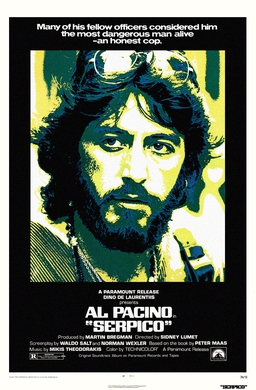This week’s selected media, October 20, 2024: Serpico, The Road
This week I finished two great works:

Serpico, by Sidney Lumet starring Al Pacino about Frank Serpico: I watched this movie again since starting volunteering as an auxiliary, not that I see anything like what this movie covers. Before commenting on the content, Pacino’s acting made watching the movie watching him. He didn’t upstage others. He just played the role masterfully.
On par with Pacino’s acting is the story of Frank Serpico and its relevance to my work. Serpico found the NYPD systemically corrupt to the highest levels.
When you live in a corrupt culture, it’s easier to follow culture than to stick with what you believe is right. In a community where everyone is corrupt, people ask “Who can trust a cop who doesn’t take money?” Not exactly “Only governments and corporations can change on the scale we need,” but reveals how people become corrupt and live by their values.
If you believe individual action doesn’t matter, you’d say Serpico should accept the money the corrupt cops (also known as criminals) offer him. After all, you believe his actions won’t affect the system, but extra money could help him.
On the contrary, in a corrupt system, the opposite of individual action is corruption. Alternatively, individual action forces systemic change. As I understand the real Frank Serpico, he’s a hero who overcame similar problems of a corrupt system that needs changing.
He’s become a role model for me as someone who lives his values in the context of an overwhelming culture of corruption. In the video below he says “You have to go up against the odds to do the right thing.” I agree, though not where I’d risk being shot.
Another great comment from Frank Serpico:
Al Pacino asked, “Frank, why didn’t you just take the money?”
Serpico replied: “If I didn’t, who would I be when I listened to a piece of music?”
Also in the video below, just after the part where I set it to start playing, he says he’s “taken some lumps” but has no regrets. To clarify, he was shot in the face but doesn’t feel regret.
We can learn from him. Most Americans and many people alive today would give up or play along.
The Road, by Cormac McCarthy: It took me a while into this book to notice the trees and other plants weren’t alive. For much of the book, I presumed the plants were alive.
I’d been meaning to read this book a while and people have suggested I read it. It’s dark and well-written. The writing style and characters show why so many consider it such a great book and the author so great too.
Still, it shows a future so bleak and desperate, It’s hard to tell what caused the problem. I can’t see how the situation would result from nuclear war, disease, or getting hit by a meteor. The cause is a side point. The man and the boy explore how characters would act in such a dire situation.
Reviews and commentaries on the book praise it as one of the best novels by one of the best writers. I don’t remember any describing the road or the landscape as a character. I imagine McCarthy spent as much time figuring out the landscape’s background and origins as any of the other characters. I don’t see him portraying it as qualitatively different than our world today. I see him portraying it as our world and culture’s logical outcome.
If the road and landscape of The Road are the end of our road, then the lives and relationships of the people in The Road are what happens to us if we keep to our path: desire to love and protect rent asunder by isolation, cannibalism, emptiness, starvation, mistrust, fear.
Read my weekly newsletter

On initiative, leadership, the environment, and burpees